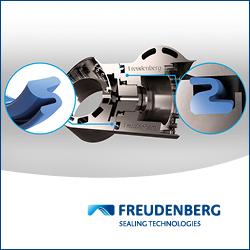CTA Self-Driving Vehicles Members Align on Industry, Consumer Terminology
Daimler, Waymo chairing CTA's newly-formed Self-Driving Vehicle Working Group
Arlington, VA, April 28, 2017 - Today, the Consumer Technology Association (CTA) announced self-driving vehicle terminology designed to enable a common lexicon among the technology industry and better explain to consumers the terms and concepts of this rapidly innovating sector.
The definitions were developed and approved by CTA's recently-formed Self-Driving Vehicles Working Group - chaired by Daimler North America and Waymo, and comprised of 34 companies - which also supports driverless vehicle consumer research and policy advocacy.
"From developments in advanced driver-assist systems to new mobility models, we are together leading a revolution in the transportation sector," said Jessica Nigro, manager, Outreach and Innovation Policy at Daimler and chair of CTA's Self-Driving Working Group. "A common lexicon will increase understanding amongst policymakers, consumers and other stakeholders and encourage sound policies to bring automated driving technology to market."
.
Among the terms and concepts addressed within the self-driving vehicle terminology:
.
• Advanced Driver Assistance Systems (ADAS) or "Driver-Assist" Features: Onboard systems developed to improve safety and performance - examples include lane departure warnings, collision avoidance, adaptive cruise control and automatic braking
• Aftermarket Technology: Technology services or upgrades provided by companies - unaffiliated with the vehicle manufacturer - added after a vehicle is sold or leased
• Driving Environment Sensing: The capturing, processing and analysis of sensor data (e.g., cameras, radar, LIDAR) to enhance or replace what a human driver senses
• MaaS (Mobility as a Service): The shift from personal ownership of transportation modes to shared transportation systems and services
• Platooning: Synchronous operation of multiple vehicles, often in a convoy, to increase road capacity and efficiency
• Self-Driving Vehicle: A vehicle capable of fully modeling its environment through an array of sensors, maps and other data in order to navigate and drive without human interaction
• Urban Mobility: The ability for people in urban and suburban areas to access all modes and forms of transportation.
According to CTA research conducted last year, the vast majority of U.S. consumers (three in four) are excited about the many benefits self-driving vehicles can offer, and almost two-thirds want to swap their current cars for completely self-driving vehicles. Additionally, 70 percent of consumers have a strong interest in testing a driverless car, and almost all drivers (93 percent) who use existing driver-assist features appreciate the usefulness of these driving technology innovations.
.
"Our future will have fewer traffic collisions and fewer deaths - and self-driving cars will create undreamed of independence for seniors and the visually impaired," said Gary Shapiro, president and CEO, CTA. "We are thrilled to gather many of the different interests in the self-driving ecosystem who are committed to saving lives as soon as possible. This will improve our world."
Driverless cars were a major theme at CES® 2017, produced by CTA. The entire self-driving vehicle supply chain was showcased including exhibitors Bosch, FCA, Ford, Intel, Toyota, Visteon and Volkswagen - all of whom are members of CTA's Self-Driving Vehicles Working Group. Nine major automakers exhibited, the CEOs of sector innovators Nissan, NVIDIA and Qualcomm delivered keynote addresses and the Self-Driving Technology Marketplace increased 42 percent over 2016. For a closer look at the vehicle technology presence at CES 2017, see highlights here.
CTA recognizes that self-driving cars will disrupt many jobs in the decades to come, which is one of the motivations for CTA's inaugural New American Jobs Summit on May 3 in Washington, DC. The summit will explore how government and the private sector can collaborate to develop a competitive workforce, create new high-wage jobs and foster economic growth in the face of rapid technological innovation, an aging population and increased global competition.
###
About Consumer Technology Association:
Consumer Technology Association (CTA) ™ is the trade association representing the $292 billion U.S. consumer technology industry, which supports more than 15 million U.S. jobs. More than 2,200 companies - 80 percent are small businesses and startups; others are among the world's best known brands - enjoy the benefits of CTA membership including policy advocacy, market research, technical education, industry promotion, standards development and the fostering of business and strategic relationships. CTA also owns and produces CES® - the world's gathering place for all who thrive on the business of consumer technologies. Profits from CES are reinvested into CTA's industry services.
Featured Product

IP Seals for Robots
Freudenberg Sealing Technologies' IPRS (Ingress Protection Seals for Robots) provides reliable protection for robotic systems operating in harsh environments. Designed to prevent dust, moisture, chemicals, and wear from compromising performance, IPRS extends service life and reduces maintenance. The adaptive Z-shaped geometry ensures sealing integrity under continuous motion, making it ideal for high-speed automation and outdoor applications. Manufactured with high-performance elastomers such as Fluoroprene XP and EPDM, IPRS offers exceptional resistance to lubricants, cleaning agents, and extreme temperatures. This makes it the perfect solution for six-axis robots, SCARA robots, AMRs, AGVs, and cobots.
With its low-friction design and durable materials, IPRS enhances energy efficiency and operational reliability in industrial and autonomous robotics. Learn more about our IPRS Seals
